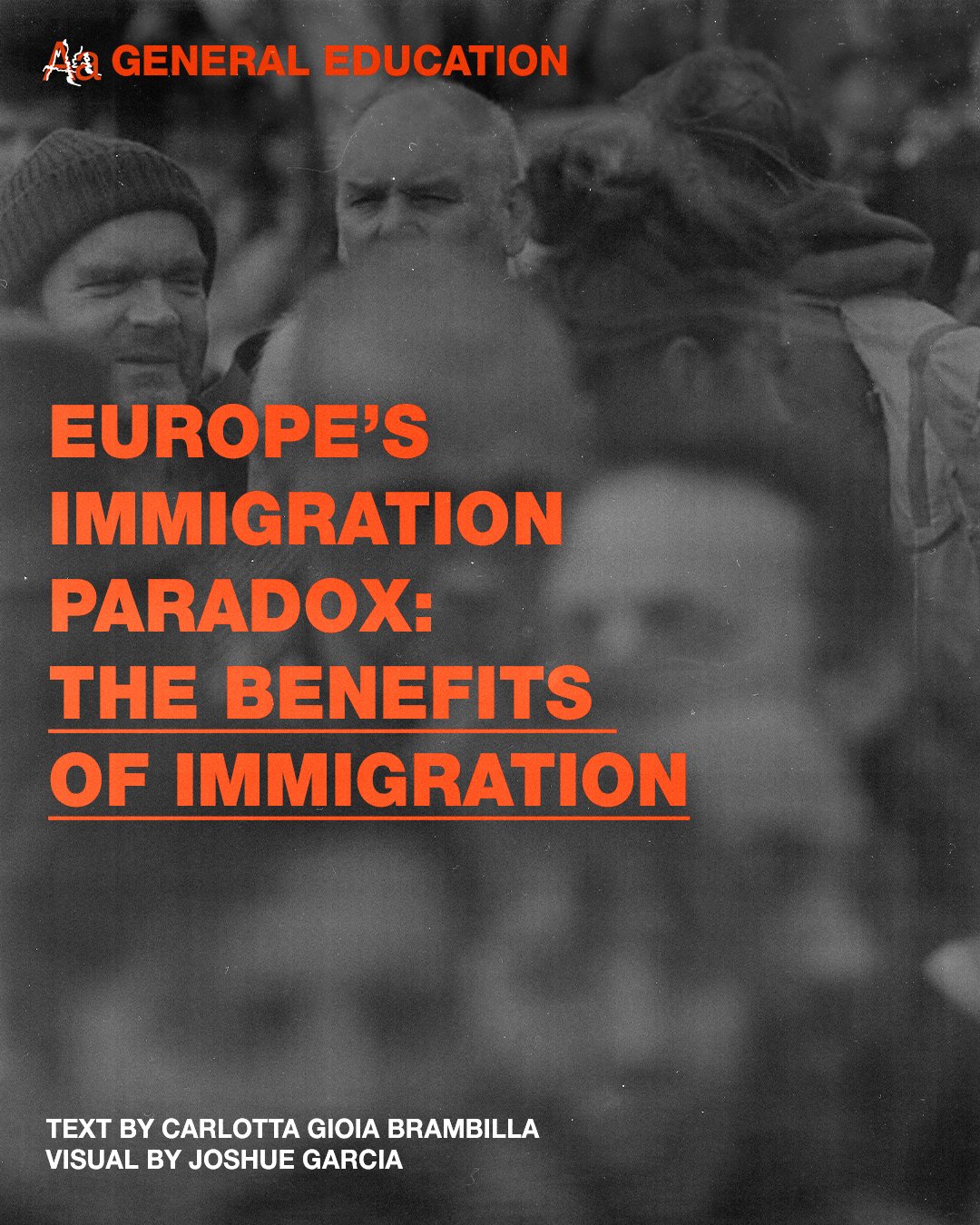Populism is often associated with oversimplified, emotionally charged rhetoric and far-right or anti-immigration ideologies. While many populist leaders lean into these narratives, populism itself isn’t defined by them. At its core, it’s a worldview that divides society into two opposing groups and argues that politics should reflect the general will of the people. But why does populism resonate so strongly with so many? In this post, we break down what populism really is, how populists operate, and why their messages hold such appeal.
Text and visuals by Anastasia Gviniachvili
What is Populism?
We’ve all seen the word populism thrown around in the media. It’s everywhere, but how often do we actually know what it refers to when skimming over headlines? We figured it was time to cut through the noise and lay it out clearly.
Populism, in itself, is not:
- Simplified, emotionally charged rhetoric
- Politically opportunistic strategies
- Inherently anti-immigration or far-right ideology
- Fundamental skepticism toward the European Union
While populism can include these elements, they aren’t what define it.
What is Populism, then?
At its core, populism is a set of ideas that divides society into two opposing camps, such as ‘the pure people‘ vs. ‘the corrupt elite‘. It argues that politics should be a direct expression of the ‘general will’ of the people (Mudde, 2004).
In other words, populism frames society as a battle between ‘us’ and ‘them.’ This might take the form of migrants vs. Europeans, economic elites vs. the working class, or any other in-group vs. out-group dynamic. To gain support, populists often attribute blame to the out-group, fueling division and resentment in the process.
Who are Populists?
People who embrace populist ideas are, unsurprisingly, called populists. What sets them apart isn’t necessarily a strict ideology but rather how they communicate and position themselves.
Populists tend to:
- Bypass traditional (elitist) institutions
- Claim to speak directly to ‘the people‘
- Rely heavily on social media
- Blame mainstream media for bias or corruption
According to the Tony Blair Institute for Global Change, the number of populist leaders in power worldwide increased fivefold—from four to 20—between 1990 and 2018, before dropping to a 20-year low in 2023.
Here are some populist leaders who have held power in recent years:

- Benjamin Netanyahu – Prime Minister of Israel (1996–99, 2009–21, 2022–present)
- Silvio Berlusconi – Italian media magnate and Prime Minister (1994–95, 2001–06, 2008–11, 2013)
- Rodrigo Duterte – President of the Philippines (2016–2022)
- Recep Tayyip Erdoğan – Prime Minister/President of Turkey (2003–present)
- Donald Trump – President of the United States (2016–20, 2024–present)
- Nicolás Maduro – President of Venezuela (2013–present)
- Vladimir Putin – President of Russia (2000–present)
- Viktor Orbán – Prime Minister of Hungary (1998–2002, 2010–present)
- Narendra Modi – Prime Minister of India (2014–present)
Why Are They So Popular?
Now for the big question: why does populism have such a strong grip on politics today?
One major reason is that populism simplifies complex issues. Rather than unpacking the root of economic inequality or social unrest, populists often point the finger at a single out-group. Think Trump blaming immigrants for the U.S.’s economic decline.
Populists also activate negative stereotypes about the out-group while portraying the in-group as innocent or even victimized. This absolves supporters of responsibility for social or economic struggles. No introspection needed. And let’s be honest—who doesn’t like having someone else to blame for their problems?
Who Finds Populism Most Appealing?
Populist messaging tends to resonate most with people who:
- Feel socially or culturally detached from the out-group (e.g., migrants)
- Perceive populist rhetoric as consistent in their messaging
- Have a strong need to shift blame
Populism is not necessarily tied to being working-class, low-income, male, or young. However, research shows that it resonates most with people who are angry and distrustful—especially those who feel left out or unheard. There’s also a slightly stronger effect among those with lower levels of formal education, but that’s only part of the story. Populism thrives on emotion, not demographics.
References
Hameleers, M. (2023). They did it! The pervasiveness and persuasiveness of populist communication [Guest lecture]. Political Communication and Journalism Course, University of Amsterdam.
Mudde, C. (2004). The populist zeitgeist. Government and Opposition, 39(4), 541–563. https://doi.org/10.1111/j.1477-7053.2004.00135.x
Kyle, J., & Gultchin, L. (2018). Populists in power around the world. Tony Blair Institute for Global Change. https://institute.global/insights/geopolitics-and-security/populists-power-around-world




